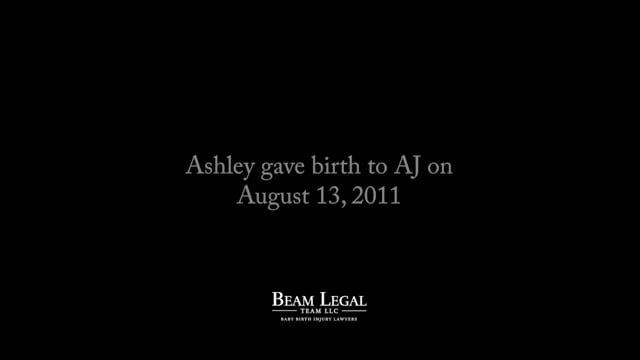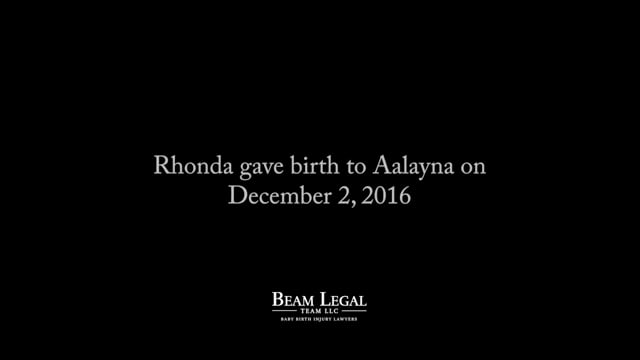Chicago Fetal Stroke Attorney
Over One Billion Dollars in Verdicts and Settlements for Birth Injury Victims & Families

If your child suffered a fetal stroke after birth, you deserve strong advocacy. Our team at Beam Legal Team can help you. Contact one of our birth injury lawyers in Chicago today to learn more. We represent clients around the United States.
Understanding Fetal Stroke
A fetal stroke (sometimes called an “infarct”) occurs when the blood supply to the baby’s brain is interrupted before, during, or right after delivery. There are two main types:
Ischemic Fetal Stroke: This type is caused by a blood clot or other blockage restricting blood flow and oxygen delivery to areas of the brain. The lack of oxygen and nutrients can damage brain cells.
Hemorrhagic Fetal Stroke: This is caused by bleeding in or around the brain, often from a ruptured blood vessel. The excess blood puts pressure on brain tissue, leading to damage.
Unlike strokes in adults, fetal strokes do not stem from underlying conditions like hypertension or plaque buildup. However, maternal health conditions and complications during delivery can contribute to the likelihood of a fetal stroke.
The impact of a fetal stroke on development varies, ranging from mild learning disabilities to more severe effects like cerebral palsy. Early detection and intervention can help manage the outcomes, making it imperative to monitor for signs of neurological issues.
Risk Factors for Stroke During Labor and Delivery
Fetal stroke can occur at any point during gestation, including during labor and delivery.
Risk factors that can lead to fetal stroke during labor and delivery include:
- Infection
- Head trauma
- Preeclampsia
- Gestational diabetes
- Placental abruption
- Blood clot formation within a blood vessel
- Hemorrhaging / internal bleeding
- Birth asphyxia / Hypoxic-Ischemic Encephalopathy (HIE)
Need assistance? Request a complimentary consultation online or call us at (866) 404-5221.
Induced Labor and Intrapartum Stroke / Infarct
Induction during delivery can also lead to fetal stroke. Drugs such as Pitocin and Cytotec are often used to induce labor and can lead to injuries to the unborn baby, including HIE and stroke. The results of a fetal stroke—also referred to as cerebrovascular accident or brain infarct—can be severe.
Results of intrapartum stroke include:
- Seizures
- Developmental difficulties
- Cerebral palsy
- Intellectual Disability
Diagnosis and Detection of Fetal Strokes
Fetal strokes can sometimes be detected during pregnancy via ultrasound if the baby exhibits seizures or abnormal brain activity and development. After delivery, diagnostic tests include:
- Brain MRI scan to visualize stroke damage or bleeding
- CT scan to identify areas of brain injury
- Electroencephalogram (EEG) to measure seizure activity
- Cranial ultrasound to examine brain structures
Prompt diagnosis is critical to quickly begin treatment to prevent further brain damage and lifelong disabilities.
Legal Rights and Compensation
If a medical provider’s negligence, such as failing to properly treat infections, monitor fetal distress, or order an emergency C-section caused the fetal stroke, families may have a malpractice claim. An experienced fetal stroke lawyer can investigate and determine if care fell below accepted standards.
Compensation from a successful case can provide funds for the following:
- Ongoing medical expenses
- Therapeutic services
- Home modifications
- Assistive equipment
- Lifetime care required
- Lost wages due to caring for the child
- Pain and suffering
The legal process is designed to hold negligent parties accountable to prevent others from the same harm and make sure families can cover all costs associated with the birth injury.
Consult Our Chicago Fetal Stroke Attorneys Free of Charge
You deserve to know your rights and to know where you stand after a birth injury. Discuss your case with our team today. Our Chicago fetal stroke lawyers have secured over one billion dollars in successful verdicts and settlements for our clients.
Contact our Chicago fetal stroke attorneys by calling (866) 927-3088 and arrange a free review of your case.







